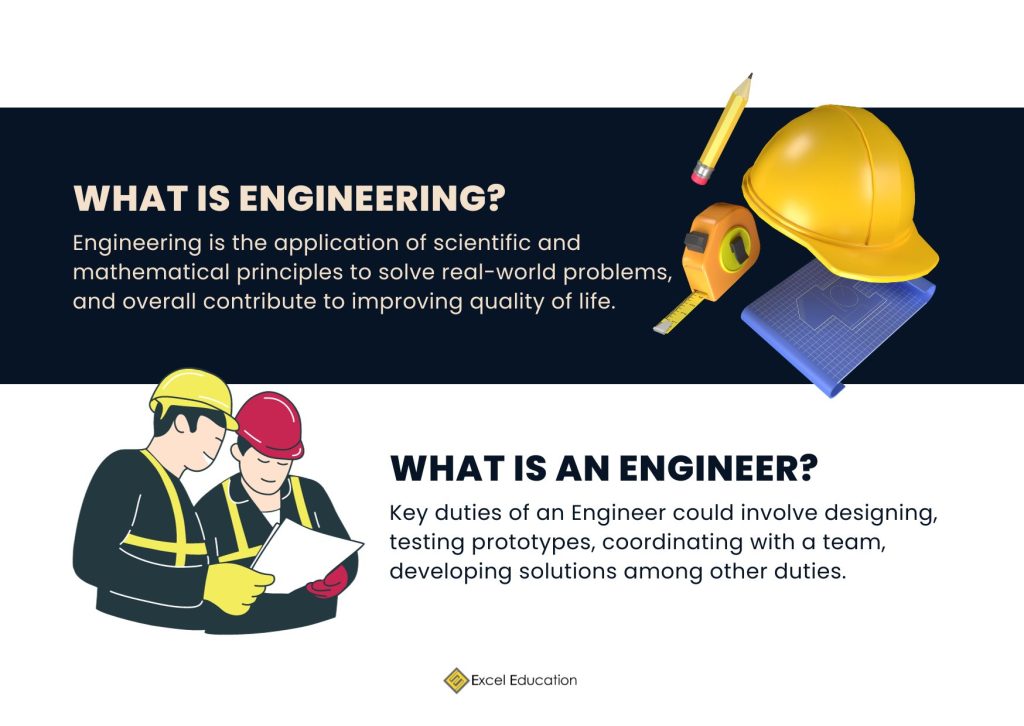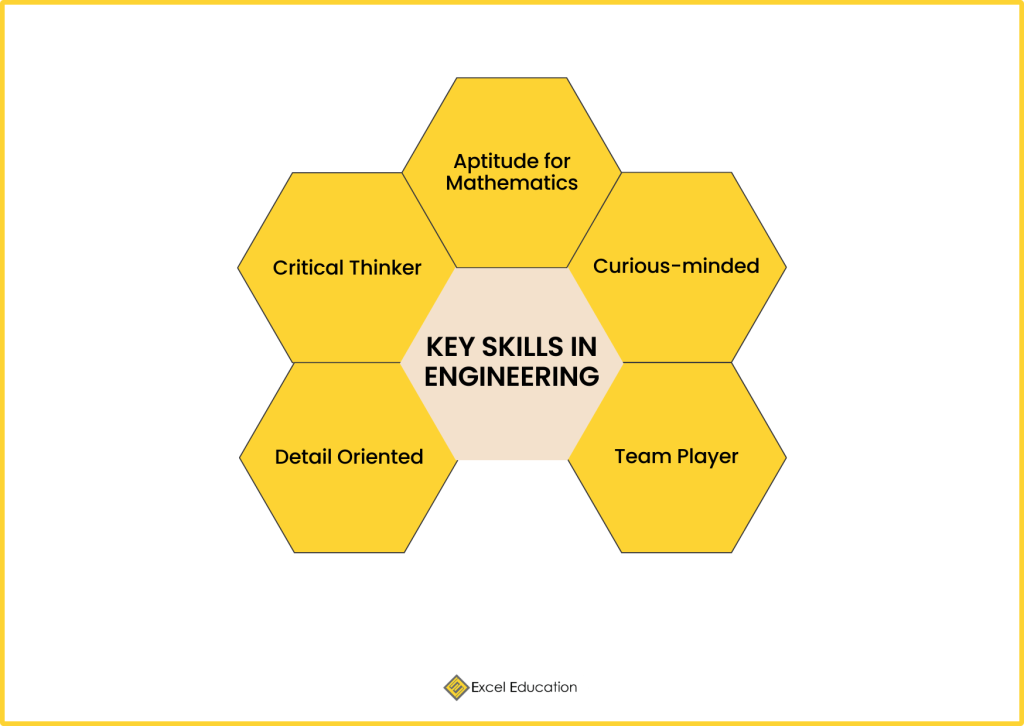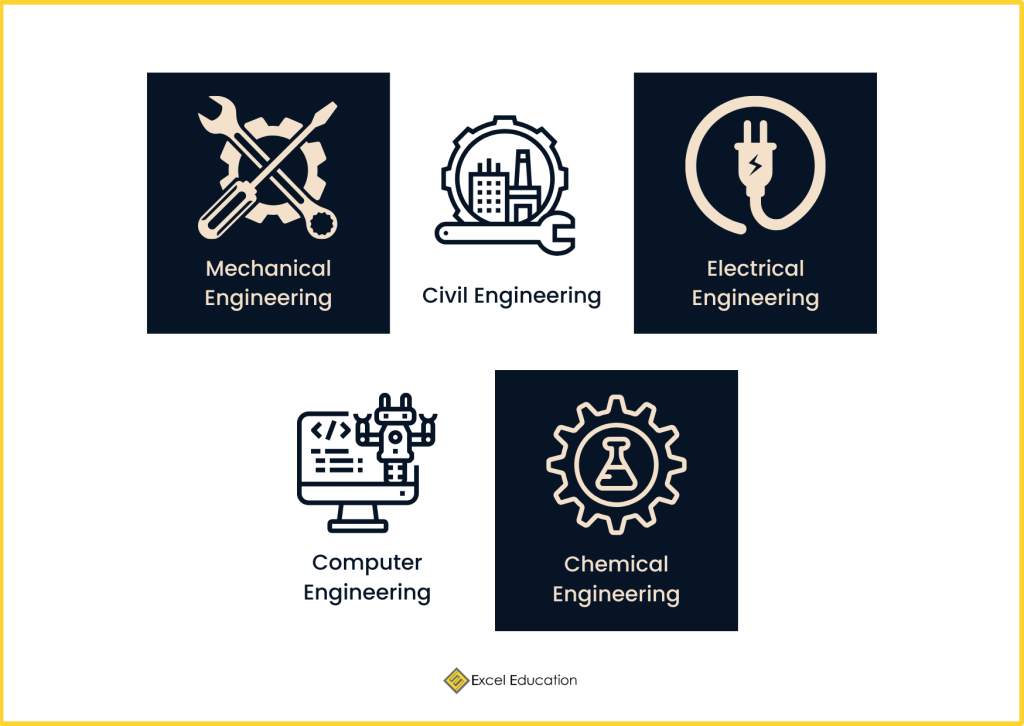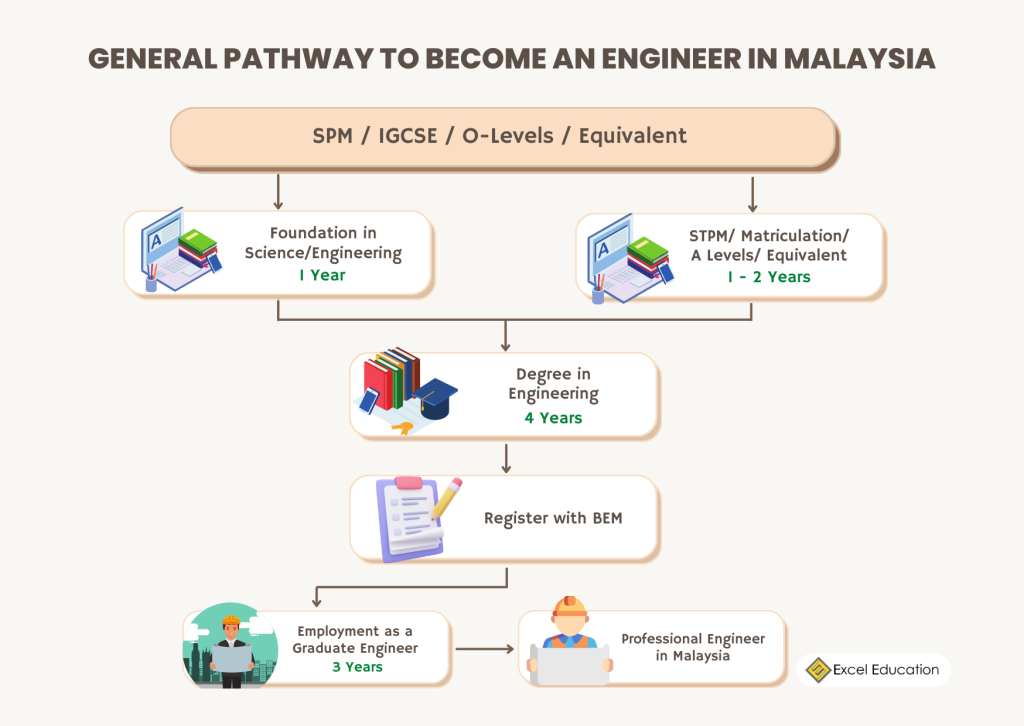
The situation of living comfortably in a well-lit house, with gadgets like smartphones, laptops, or PCs, the existence of transportation and roads, and the advancements in crafting new technologies, are all huge thanks to Engineering.
What is Engineering?

One of the definitions of Engineering is: Engineering is the application of scientific and mathematical principles to solve real-world problems, build practical tools and machines, and overall contribute to improving quality of life. Everywhere you turn, every single infrastructure you see, is the fruit of Engineering.
Engineering has played roles in the medical field, the computing field, the retail industry, the oil and gas industry, pharmaceuticals, you name it! Engineering is capable of extending to almost everything. That is what makes Engineering a major key in growing, developing, and improving nations.
It has been said that to engineer is to skillfully arrange, design, and build technologies and structures. So, What do Engineers do? Depending on the scope of Engineering, responsibilities might differ. Though, generally, key duties of an Engineer would involve designing and testing prototypes, coordinating with a team on product development, developing solutions to improve processes, performing feasibility tests, among others.
Essentially, Engineering is a field which is significant to innovate technologies and significantly develop countless industries.
Key Skills in Engineering

- Aptitude for Mathematics
Most programmes and key duties in Engineering would involve the subject of Mathematics. Thus, an aptitude for Mathematics would greatly contribute to success in the Engineering field.
- Critical Thinker
In the field, solving problems is a no-brainer. Being a critical thinker would substantially help in finding innovative methods to solve the problems and contribute to respective industries.
- Curious-minded
Engineering appreciates the act of looking at the world with curiosity. Having the trait of being curious-minded invigorates imagination and fuels the spirit of problem solving and thinking outside the box, allowing for innovative approaches to finding alternative solutions and scenarios.
- Detail Oriented
In order to ensure plans and structures are proper, there is definitely a need to be detail oriented. This aspect does not only surround the products being developed, but also relates to budgeting and task delegation within a team, to ensure efficiency in carrying out Engineering projects and avoid loss in terms of physical or financial damage.
- Team Player
Engineers are most likely working in a team for their Engineering projects. In an effort to foster brainstorming sessions, convey technical information, and perform best quality work, being a team player is a significant key skill. As the saying goes, teamwork makes the dream work.
Overview of Types of Engineering

Below are brief elaborations on the common types of Engineering found in Malaysia:
- Civil Engineering
Civil Engineering is a branch of Engineering dealing with urban development generally focusing on large construction projects on public works. This includes sewage systems, airports, bridges, dams, roads, and many others. As such, Civil Engineering is very common in the construction industry.
- Mechanical Engineering
Mechanical Engineering is a branch of Engineering responsible for the design, development, and innovation of machines particularly their mechanical parts and systems. Mechanical Engineering is typically focused on automotive, manufacturing, industrial and aerospace industries.
- Electrical & Electronics Engineering
Electrical Engineering centres on the design and development of electrical components, devices, electronics, and electrical systems. The field of Electrical Engineering covers a wide range of electrical concepts from microscoping computing components to large power networks.
- Computer Engineering
Computer Engineering is a branch of Engineering which mainly combines computer science and Electrical Engineering. Computer Engineers typically work more with computer systems and hardware as compared to programming languages and software.
- Chemical Engineering
Chemical Engineering is an Engineering field relating to the various use and applications of chemical products and its development. Those in Chemical Engineering can be involved in various industries such as nuclear, biochemical engineering, petroleum engineering, agriculture, and many others.
General Entry Requirements to study Engineering in Malaysia
Academic Entry
Academic entry | Minimum Score |
Foundation | CGPA 2.00 |
Diploma | CGPA of 2.00 in a related field |
STPM | CC with min. CGPA 2.00 |
UEC | Pass with 5Bs (including B in Mathematics) |
A-Levels | Min. DDD / equivalent of 180 points (including Mathematics) |
Australian Matriculation (ATAR) | A minimum ATAR of 60 (with Pass in Mathematics and 1 Natural Sciences Subject – Physics/Chemistry/Biology) |
IB Diploma | Min. 24 points in 6 subjects (including Mathematics) |
Note: Universities may have different requirements. To learn more, get in touch with us!
English Language Entry Requirements
Entry Level | Minimum Score |
IELTS | Pass |
MUET | Pass |
TOEFL | Pass |
Note: Universities may have different English Language requirements. To learn more, get in touch with us!
General Pathway to become an Engineer in Malaysia

First, complete SPM or equivalent examinations while ensuring the inclusion of required subjects depending on the type of Engineering you plan to take.
Second, enrol and complete a pre-university or diploma programme which qualifies you into an Engineering Bachelor’s Degree.
Third, enrol and complete an Engineering Bachelor’s Degree which should be accredited either by the Board of Engineers Malaysia (BEM) or a signatory of the Washington Accord.
Upon graduation, you should register with BEM for employment as a Graduate Engineer. To become a Professional Engineer, you need 3 years of employment experience as a Graduate Engineer. There may be different requirements for different Engineering disciplines, thus, you should properly research which pathway is relevant to you.
Universities to study Engineering in Malaysia
1. Taylor’s University

Taylor’s University is a widely recognised private higher education institution in Malaysia equipped with exceptional education resources and facilities to reach their goal of yielding accomplished graduates through their holistic approaches to learning.
The School of Engineering at Taylor’s University offers enriching Engineering programmes with multiple initiatives and opportunities for students to join challenges and events. Most of the Engineering programmes at Taylor’s have full accreditations form the Board of Engineers Malaysia (BEM) making them a viable study option.
Programme Offered | Duration | Intake | Indicative Fees (2024) |
Bachelor of Chemical Engineering with Honours | 4 Years | February, April, September | Local Students: RM 158,038 International Students: USD 39,568 |
Bachelor of Electrical and Electronic Engineering (Honours) | 4 Years | February, April, September | Local Students: RM 158,038 International Students: USD 39,568 |
Bachelor of Mechanical Engineering (Honours) | 4 Years | February, April, September | Local Students: RM 158,038 International Students: USD 39,568 |
Bachelor of Robotic Design and Development (Honours) | 3 Years | February, April, September | Local Students: RM 123,063 International Student: USD 31,807 |
Contact us right now for a free consultation if you’d like more details about the costs, the format of the programme, and the entry requirements!
2. Asia Pacific University of Technology and Innovation

The award-winning Asia Pacific University of Technology and Innovation (APU) in Malaysia promotes the incorporation of technology, innovation, and creativity into its curricula in an effort to produce graduates who are competent, adaptable, and marketable.
The School of Engineering at APU emphasises on market-driven Engineering curriculum with full accreditations from the Board of Engineers Malaysia (BEM) as well as compulsory internship training. APU focuses on graduate employability where the syllabus is modelled with an outcome based education (OBE) making it a suitable choice for those wanting to become Engineers in Malaysia.
Programme Offered | Duration | Intake | Indicative Fees (2024) |
Bachelor of Electrical and Electronic Engineering with Honours | 4 Years | March, July, September, November | Local Students: RM 116,000 International Student: RM 128,000 (USD 29,090) |
Bachelor of Mechanical Engineering with Honours | 4 Years | March, July, September, November | Local Students: RM 116,000 International Student: RM 128,000 (USD 29,090) |
Bachelor of Mechatronic Engineering with Honours | 4 Years | March, July, September, November | Local Students: RM 116,000 International Student: RM 128,000 (USD 29,090) |
Bachelor of Computer Engineering with Honours | 4 Years | March, July, September, November | Local Students: RM 116,000 International Student: RM 128,000 (USD 29,090) |
Bachelor of Petroleum Engineering with Honours | 4 Years | March, July, September, November | Local Students: RM 116,000 International Student: RM 128,000 (USD 29,090) |
Contact us right now for a free consultation if you’d like more details about the costs, the format of the programme, and the entry requirements!
3. Curtin University

Curtin University in Malaysia is one counterpart of Curtin University Australia. Curtin University Malaysia is a campus located in Miri, Sarawak in Malaysia. Students will experience Australian education with access to modern facilities and the scenery of beautiful Borneo.
The Faculty of Engineering and Science at Curtin University Malaysia is dedicated to the pursuit of excellence and innovative applications of Engineering technology in a way that is relevant to the community at large. Curtin commits to a syllabus focusing on Problem-Based Learning mimicking the real-life experience of being an Engineer.
Programme Offered | Duration | Intake | Indicative Fees (2024) |
Bachelor of Engineering (Civil and Construction Engineering) (Honours) | 4 Years | February, July | Local Students: RM 118,784 International Student: RM 177,376 |
Bachelor of Engineering (Chemical Engineering) (Honours) | 4 Years | February, July | Local Students: RM 118,784 International Student: RM 177,376 |
Bachelor of Engineering (Electrical and Electronic Engineering) (Honours) | 4 Years | February, July | Local Students: RM 118,784 International Student: RM 177,376 |
Bachelor of Engineering (Environmental Engineering) (Honours) | 4 Years | February, July | Local Students: RM 118,784 International Student: RM 177,376 |
Bachelor of Engineering (Mechanical Engineering) (Honours) | 4 Years | February, July | Local Students: RM 118,784 International Student: RM 177,376 |
Contact us right now for a free consultation if you’d like more details about the costs, the format of the programme, and the entry requirements!
4. INTI International University

INTI International University believes in an education that empowers their graduates, allowing them to explore their passion and realise their true potential through proper learning experiences furnished with adequate facilities and equipment.
Engineering at INTI has multiple international accreditations alongside recognition from Engineering Accreditation Council (EAC) Malaysia and the Board of Engineers Malaysia. INTI gives the opportunity for industrial training placements, enhancement programmes, and employer project assignments meant to give foundational experience to students of the Engineering field.
Programme Offered | Duration | Intake | Indicative Fees (2024) |
Bachelor of Civil Engineering with Honours | 4 Years | January, May, August | Local Students: RM 90,783 International Students: RM 90,783 |
Bachelor of Mechanical Engineering with Honours | 4 Years | January, May, August | Local Students: RM 90,764 International Students: RM 90,764 |
Contact us right now for a free consultation if you’d like more details about the costs, the format of the programme, and the entry requirements!
5. Multimedia University

Multimedia University (MMU) is the oldest and first ever full-fledged private university in Malaysia. It is a government-linked university owned by Telekom Malaysia with campuses located in Cyberjaya and Melaka. Offering state-of-the-art undergraduate and graduate degrees in many fields including Engineering.
MMU has two faculties dedicated to the field of Engineering, which are the Faculty of Engineering (FOE) and the Faculty of Engineering & Technology (FET). Engineering programmes by MMU have proper accreditations from both Board of Engineers Malaysia (BEM) and the Engineering Accreditation Council (EAC) Malaysia. Programmes emphasise practical learning through capstone projects, industrial training, and innovative learning tools.
Programme Offered | Duration | Intake | Indicative Fees (2024) |
Bachelor of Engineering (Hons.) Mechanical | 4 Years | March, August, October | Local Students: RM 76,000 International Students: RM 94,500 |
Bachelor of Engineering (Hons.) Electrical | 4 Years | March, August, October | Local Students: RM 76,000 International Students: RM 94,500 |
Bachelor of Engineering (Hons.) Electronics | 4 Years | March, August, October | Local Students: RM 76,000 International Students: RM 94,500 |
Bachelor of Engineering (Hons.) Electronics majoring in Telecommunications | 4 Years | March, August, October | Local Students: RM 76,000 International Students: RM 94,500 |
Bachelor of Engineering (Hons.) Electronics majoring in Computer | 4 Years | March, August, October | Local Students: RM 76,000 International Students: RM 94,500 |
Bachelor of Engineering (Hons.) Electronics majoring in Robotics & Automation | 4 Years | March, August, October | Local Students: RM 76,000 International Students: RM 94,500 |
Contact us right now for a free consultation if you’d like more details about the costs, the format of the programme, and the entry requirements!
For more information regarding the university, programs offered, entry requirements and fees, contact Excel Education.
About The Author

Hannah Hir
Hannah appreciates various art forms, especially Asian literature, film and music. Most of her favorite Malaysian kuihs are green-coloured.

